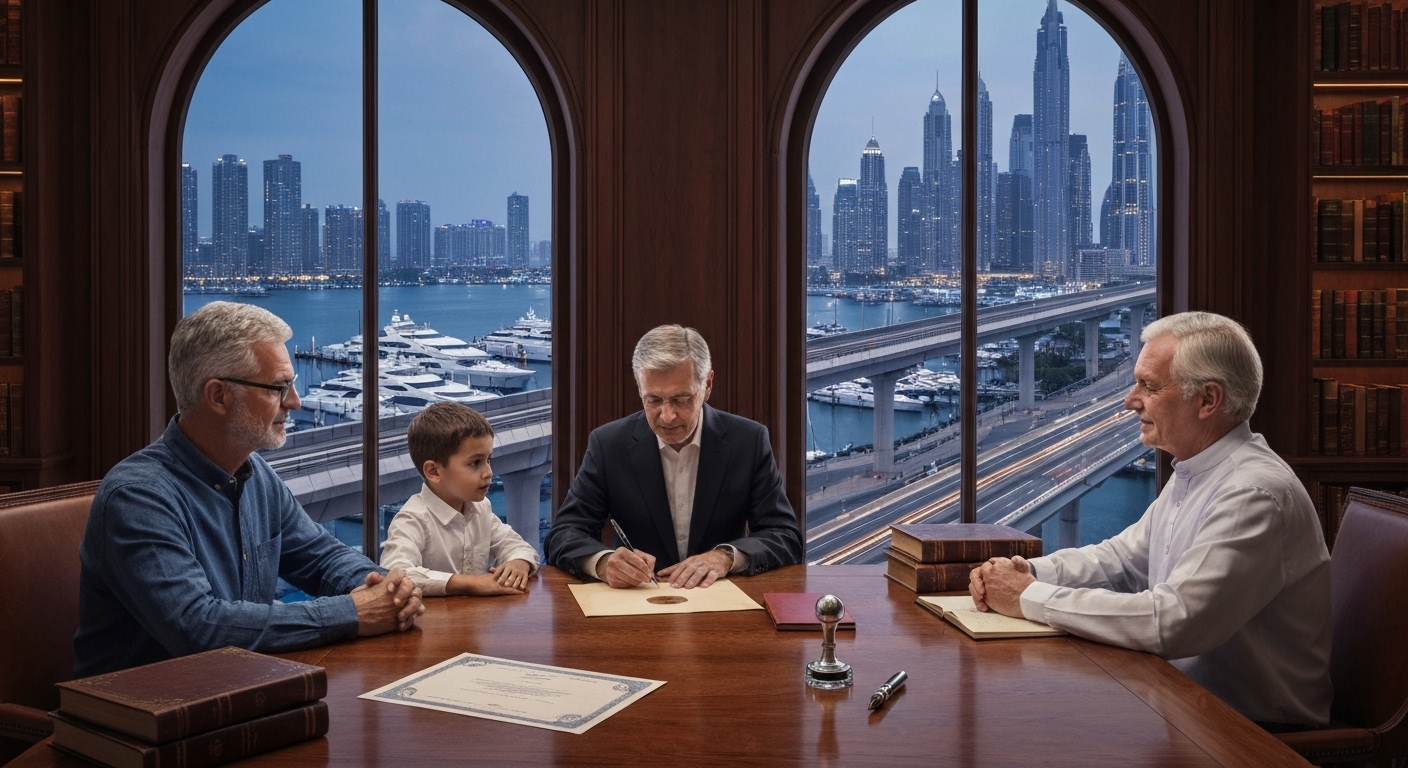Dubai property inheritance law for non-Muslim expats is a crucial consideration for any expatriate owning or planning to invest in Dubai real estate. Understanding how UAE law treats property succession for non-Muslims is vital for asset protection, family security, and ensuring your estate is distributed as you intend. This article provides clear, actionable answers to help you safeguard your Dubai property, referencing the latest legal changes and local procedures.
Understanding Recent Changes to UAE Inheritance Law for Non-Muslims
Historically, inheritance in Dubai for expatriates was governed by Sharia law, which stipulated fixed shares for heirs. However, significant reforms in recent years now allow non-Muslim expats to have greater control over how their assets, including property, are distributed upon their passing. The UAE’s amendments specifically permit non-Muslim expatriates to opt for the laws of their home country when it comes to property and inheritance matters, provided this is specified in a legally recognized will.
The Dubai property market’s appeal to global investors is enhanced by such legal reforms, as expats now enjoy 100% property ownership rights and even qualify for long-term residency through programs like the Golden Visa. These policy updates encourage expatriates to invest confidently, knowing that their assets can be securely passed to their chosen beneficiaries.
Sharia Law vs. Civil Law: How it Applies to Expat Property in Dubai
For non-Muslim expatriates, understanding the interplay between Sharia law and civil statutes is key. By default, if an expat passes away in Dubai without a will, local courts may apply Sharia law to the deceased’s property. In such cases, inheritance is divided among surviving family members based on strict, predetermined shares that may not align with the decedent’s wishes.
However, expats can override this by drafting and registering a will under Dubai’s designated jurisdictions, such as the DIFC Wills Service Centre. Doing so allows for the application of civil law — typically the law of the deceased’s home country. This is especially important for mixed-nationality families or property holders with specific succession plans, offering flexibility and peace of mind.
Making Your Will in Dubai: Securing Your Real Estate Assets
Step-by-Step: Registering a Will as a Non-Muslim Expat
To protect Dubai real estate assets and ensure your intentions are honoured, non-Muslim expats should proactively make a will. Here’s how:
1. Consult a qualified lawyer: Choose legal counsel experienced in UAE inheritance law and international estate planning.
2. Specify asset distribution: Clearly identify your Dubai property and other assets, and state your wishes for their distribution.
3. Register your will: Use recognized authorities such as the DIFC Wills Service Centre or Dubai Courts to register your will officially.
4. Inform your family and heirs: Ensure beneficiaries know where the will is registered and the process for its execution.
This approach helps bypass the default application of Sharia law and secures your family’s inheritance with clarity.
The Role of DIFC Wills and Other Registration Options for Non-Muslims
The DIFC Wills Service Centre offers a streamlined, English-language service tailored for non-Muslims, providing legal certainty for property held in Dubai and other emirates. Registration here ensures your wishes are upheld by local courts in accordance with your home country’s inheritance laws, rather than by Sharia principles. Non-Muslims can also use the Dubai Courts’ options, though procedures and documentation requirements may differ.
These registration avenues are designed to make the inheritance process straightforward for expats, reducing delays, costs, and uncertainty for surviving families.
Navigating Probate and Succession for Inherited Properties
When an estate holder passes away, Dubai courts (or DIFC, if the will is registered there) oversee probate — the validation and execution of the will. Clear, registered wills typically result in smoother property transfers to beneficiaries, allowing them to retain, sell, or lease assets with fewer complications.
Failure to prepare a will can lead to lengthy legal proceedings, potential disputes among heirs, and the risk that property is not distributed according to the expat’s wishes. Thus, timely succession planning is essential for all Dubai property owners.
Practical Steps for Non-Muslim Expats to Protect Their Dubai Property
Non-Muslim expatriates are encouraged to take proactive legal steps:
– Draft and register a will covering all UAE assets.
– Seek specialized advice to align UAE processes with your home country’s rules.
– Update estate documents after significant life events (e.g., marriage, divorce, new property purchase).
– Ensure long-term residency status (e.g., through the Golden Visa) to support inheritance and property rights.
Why Choose Danube Properties with Clear Inheritance Planning in Mind
Danube Properties stands out in Dubai’s real estate sector by upholding transparency and investor security at every stage of the ownership journey. Their commitment to legal clarity, market-leading standards, and robust after-sales service ensures your investment is both secure and succession-ready, giving you and your loved ones long-term confidence.
In summary, Dubai property inheritance law for non-Muslim expats now offers flexibility, protection, and ownership assurance. By taking simple but decisive steps – drafting a compliant will, choosing reputable developers, and staying informed — you can safeguard your assets and your family’s future in the UAE. Contact Danube Properties to learn more about secure property investment and succession planning in Dubai.




